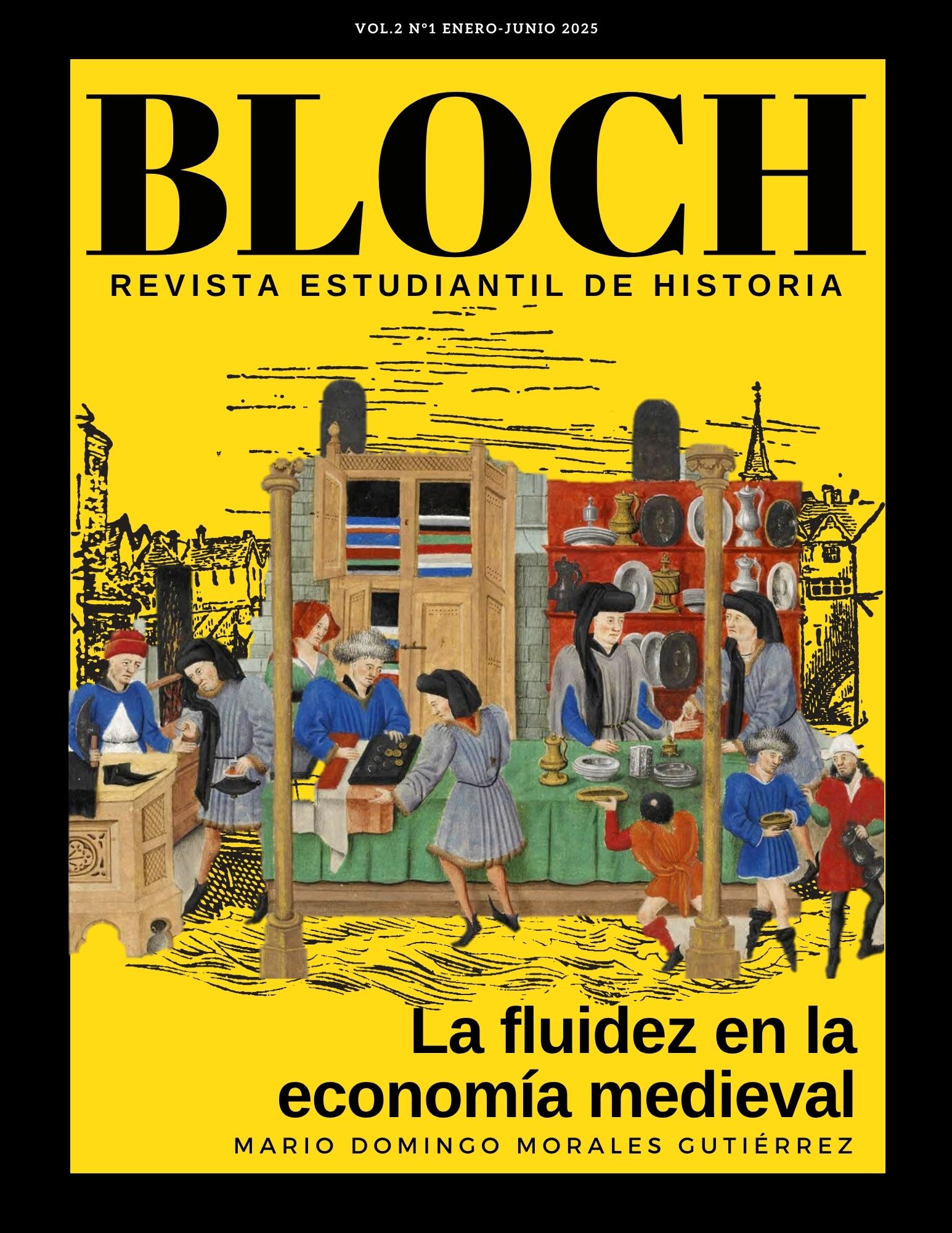
Published 2025-06-27 — Updated on 2025-07-27
Versions
- 2025-07-27 (2)
- 2025-06-27 (1)
Keywords
- Economy,
- Fluidity,
- Middle Ages,
- 20th Century,
- Trade
How to Cite
Copyright (c) 2025 Mario Domingo Morales Gutiérrez

This work is licensed under a Creative Commons Attribution 4.0 International License.
Abstract
On this academic article, certain aspects of the economic customs during the Middle Ages are analyzed, primarily using the term of “fluidity”, in addition to linking it with other contemporary terms derived from early 20th-century economic theory. This exercise seeks, first, exemplify the meaning of the term “fluidity” by observing some of the medieval economic practices, seen through the descriptions of the period by various authors, primarily Jacques Le Goff. Secondly, the article wants to expose certain elements that led to the subsequent development of early-stage capitalism, known as the mercantilist system, where fluidity is once again implicated in some of its characteristics.
Downloads
References
- Ferguson, John. Historia de la economía, Ciudad de México: Fondo de Cultura Económica, 2001.
- James, Émile. Historia del pensamiento económico en el siglo XX. Ciudad de México: Fondo de Cultura Económica, 1998.
- Lay, Maxwell, John Metcalf, Kieran Sharp. Paving our Ways: a History of the World’s Roads and Pavements. Boca Ratón, CRC Press, 2021
- Le Goff, Jacques. Mercaderes y Banqueros de la Edad Media, Buenos Aires: EUDEBA, 1982.
- ._____________. La bolsa y la vida. Economía y religión en la Edad Media, Madrid: Gedisa, 1987
- Scheifler, Xavier. Historia del pensamiento económico, (tomo 1), Ciudad de México: Trillas, 1997.
